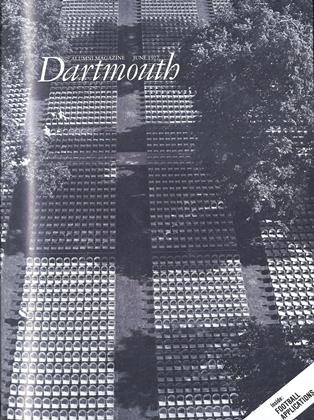In improvising jazz the performer in a real sense is composer. He moves on to composing from the chord progressions of an already-composed 32-bar pop ballad or from those of the traditional 8-, 12-, or 16-bar blues. In each phase of jazz, from its march-ragtime genesis in the Mississippi Delta, to Chicago and into swing, on into bop, and thence to the beginnings of modern jazz in the fifties, it has been the great "fakers" who have dictated the outer form and the inner message.
A line of trumpeters, from the semi-legendary Buddy Bolden to Louis Armstrong, on to Dizzy Gillespie, Clifford Brown, and Miles Davis, developed the shape and substance of the jazz solo. But in the twenties, the saxophone too emerged as a creative force, and we have the lineage of the great sax men: Orleanian Sidney Bechet. to Coleman Hawkins, Johnny Hodges, Lester Young, and on to "The Bird," Charlie Parker. Then in the decade of the fifties, in the work of three separate tenor-sax men - Sonny Rollins, Ornette Coleman, and especially John Coltrane - the new jazz began to crystalize around the saxophone more than the trumpet.
The influence of "The Trane" has been almost incalculable. Controversial almost from the start, he led right into a new jazz that is both more abstract and more compelling. So abstract, indeed - and yet personal - that the younger saxist Albert Ayler was moved to observe of Coltrane's music that "It's not about notes anymore. It's about feelings!"
Bill Cole has here contributed a bio-musical treatise on John Coltrane. He delves deeply into the Trane's intense personal life, so inextricable from his music. He traces how alcohol, used to kick heroin, became a new monkey on his back, It is a tale of heroism through which Coltrane never ceased his musical creation and, finally, moved into a transcendental religious conversion. "During the year 1957, I experienced, by the grace of God, a spiritual awakening which was to lead me to a richer, fuller, more productive life. At that time, in gratitude, I humbly asked to be given the means and privilege to make others happy through music."
Professor Cole interweaves this story with musical analyses and scores. The whole is enlivened with numerous photographs and leads to invaluable end-material: recording dates and personnel, bibliography, and index. The book is a knowing apologia and tribute to one of the great movers and shakers of our American music. Actually, no apologia is needed for its hero's life or for this warm tribute to a man and artist. In the best sense the book is subjective, and we are all beginning to realize that pure objectivity is a will-o'-the-wisp. After all, if you do not love the subject of your book, why write the book?
JOHN COLTRANEBy Professor Bill ColeSchirmer, 1976. 264 pp. $12.95
A former professor of music and newspaper jazzcritic, Mr. Blesh has written almost a dozenbooks, among them They All Played Ragtime, which went into three editions.
 View Full Issue
View Full Issue
More From This Issue
-
 Feature
FeatureMerchant of Menace, Purveyor of Pleasure
June 1977 By DAN NELSON -
 Feature
FeatureYesterday's Glories Tomorrow's ?
June 1977 By JACK DeGANGE -
 Feature
FeatureThey Also Went Forth
June 1977 -
 Feature
FeatureCommencement
June 1977 By JAMES L. FARLEY '42 -
 Article
ArticleThe Valedictories
June 1977 By JOHN FINCH -
 Article
ArticleHonorary Degrees
June 1977
Books
-
 Books
BooksShelf Life
May/June 2004 -
 Books
BooksTHE PATRIOT
January 1961 By CLIFFORD L. JORDAN JR. '45 -
 Books
BooksA MATTER OF CHOICE.
DECEMBER 1968 By JOHN HURD '21 -
 Books
BooksPILCHUCK,
October 1949 By L. Gregory Hines -
 Books
BooksNot for Art's Sake
APRIL 1982 By R. H. R. -
 Books
BooksTHE STRUCTURE OF POLITICAL THOUGHT, A STUDY IN THE HISTORY OF POLITICAL IDEALS.
JULY 1968 By VINCENT E. STARZINGER

